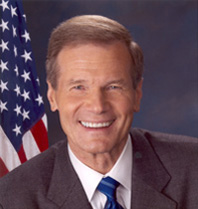With unofficial descifrado-obtained estimates suggesting 30% of the reparables turned up before noon on the first day, the oppo should be sitting pretty just now. Since CNE has banned premature results, Mendoza must be seen to be talking in code when he calls today's operation an "Operación Ñapa" - or "Operation Safety-Margin", in the very clunky English translation. Without violence, and with only scattered impediments to repairing, it shouldn't even be controversial that the opposition can mobilize 540,000 antichavistas in a situation like this - it should be a tiro al suelo...
So this should be a time of real opposition optimism. And in a way it is. My unscientific little poll here shows that at least my readers are feeling quietly hopeful. The 540,000 figure will not be a major problem.
As the comeflor inteligentsia has argued for months, we now have the chavistas just where we want them: backed into an impossible corner. To win, they have to cheat, and to cheat, they have to cheat big, cheat bold, cheat openly and blatantly under the noses of the international community and the media.
Yet much of the opposition remains ambivalent. The reason, to my mind, is the repeated government appeals for opposition leaders to declare right now that they will accept any decision the National Electoral Council reaches.
Once bitten, twice shy, the saying goes, and the opposition feels it's been bitten more than once by this CNE. With experience fresh of the council's dadaist freestyle interpretations of the constitution's article 72 and of its own regulations' articles 28, 29 and (especially) 31, the opposition is in no mood to be writing CNE blank checks at this point. Understandably so, I hasten to add...
The government senses the tactical advantage on this point and has decided to press it. In his WashPost opinion piece, Chavez made much of the oppo's reluctance to make the CNE pledge. With characteristic discipline, his underlings hammer away at it each time they get near a microphone.
The harder they press, though, the more the opposition becomes convinced that the fix must be in: the government wouldn't dream of pursuing such a high-risk strategy unless they were quite sure that CNE would eventually rule against the referendum.
As a result, the antichavistas, who have the most to gain from a fully transparent process, continus to squirm away from affirming faith in the only organization that can hand us victory.
This odd situation is typical of our hyperpolarized age, where seemingly unquestionable propositions like "we will abide by CNE reults" get aggressively politicized, problematized, stuffed through the revolutionary looking glass until they come out the other side entirely transmogrified. What should be a common sense position comes to look like an a priori endorsement of a planned fraud.
And yet, if the opposition does manage to top, say, the 700,000 repaired signature threshold - which seems entirely plausible - even a CNE as creative and resourceful as this one will have a very hard time falsifying the results. And, certainly, an impossible time doing so credibly.
Which brings us around to the other reason the government's line on the opposition's refusal to pledge to accept CNE-results rings hollow. The demand usually comes side-by-side with bold government attacks on the Carter Center/OAS Observation mission. Often, these attacks are couched in shrill language about mission heads Fernando Jaramillo (OAS) and Francisco Diez (CC) being paid opposition supporters.
In a sense, it's not surprising: twice now the Carter Center/OAS mission has publicly expressed its dissent with CNE decisions, explaining that CNE has applied criteria that fall foul of international standards. Chavistas interpret these criticisms as "proof" that the observers favor the opposition, never stopping to consider the much more straightforward possibility that the statments show that CNE decisions have not always been consistent with international standards. The telenovela surrounding Article 31 on the reparos is the obvious instance of this dynamic.
Chavez nos tiene locos, pero el maniqueismo tiene loco a los chavistas. When you only recognize two possibilities - you're a chavista or you're a coupster - it becomes impossible to accept any criticisms coming from foreign observers (or, indeed, anyone at all.) Disagreement with the chavista party line is taken as prima facie evidence of coupsterism. I find it worrying that this attitude now extends not just to Venezuelans, but also of Fernando Jaramillo and Francisco Diez.
Government supporters seem not to realize that with their ad hominem attacks on Diez and Jaramillo, they confirm to the observation mission what the opposition has been saying all along: that they are ideologically rigid, minded to equate disagreement with treason and fundamentally intolerant of opposing or diverging viewpoints. You're either with us or against us, is the underlying chavista sentiment. We are on the side of justice, truth, and history; which side are you on? Within such absolutist belief system, disagreement can only be interpreted as evidence of conspiracy, or terrorism, or coupsterism - pick your favorite term of abuse.
When you start from the assumption that your side is both righteous and infallible, you inevitably end up mired in such intolerant and autocratic thought.
Such discourse has no sense of its own boundries. It does not limit itself to keep from holding ridiculous or laughable opinions. It is, if nothing else, consistent. If Kerry is an antichavista, vote for Nader! If Francisco Diez says something that falls outside the chavista cannon, he's a conspirator. Simple.
There's just one glitch: the international observation mission, and particularly the Carter Center, and most particularly Jimmy Carter himself, have way too much credibility to simply dismiss. In fact, Carter may be the only human being alive who is almost universally respected by both chavistas and opositores.
For this reason, President Carter's visit to Caracas this weekend will be crucial to the unfolding of the crisis. CNE can be sure that the observation mission will not stand by silently in the face of fraud. And they must worry when they realize that when the observation mission's statement on the reparos process goes on TV, it will not be McCoy or Jaramillo or Diez they'll have to contend with, it'll be Cesar Gaviria sitting next to Jimmy Carter.
So what can we conclude from all of this?
- That the much maligned opposition's negotiators with CNE, Felipe Mujica and Alberto Quiroz Corradi, cut us a much better deal on the reparos than they're usually given credit for.
- That the even more universally derided long-term, pisa-pasito, softly-softly approach of the Carter Center and the OAS was far-sighted.
- That the government is now in a very uncomfortable position - hemmed in on all side the the sheer numbers of opposition signators, by the Carter Center/OAS mission, and by its own constitutional norms. If the reparos continue to go well, Chavez's options will be reduced to two: kick the gameboard or face the voters.
A final thought. Everybody loves to hate the CNE board members. This is understandable, given their penchant for applying the Incredible Metamorphosing Legal Standard. But anger is one thing, considered analysis another.
Up until this point, CNE has been friendly to the government, but it hasn't been a complete tool. Jorge Rodriguez is not German Mundarain, Carrasquero is not Willian Lara. So far, CNE has shown a clear reluctance to kick the playing board. As Kico Bautista once put it, Carrasquero's message to Chavez has always been "yes, I'm on your side, yes, I want to help, but no, I'm not going to stage an outright coup on your behalf."
Of course, right this second Carrasquero and his colleagues are almost certainly under a level of political pressure few of us are likely ever to face, and fewer of us still could really imagine. It's an extreme situation, that's for sure. What might come out of it remains a matter of total speculation.








